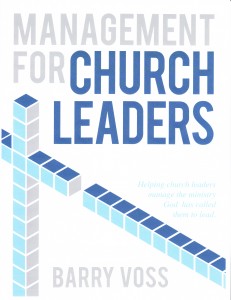
“All Scripture is God-breathed and is useful for teaching, rebuking, correcting and training in righteousness, so that the servant of God may be thoroughly equipped for every good work.”
2 Timothy 3:16-17
One of our global MCL Trainers, Hanna Karam from Lebanon, conducted a training on our Management for Church Leaders training material at a Bible College in Vinetsia, Ukraine back in May. He recently shared this testimony with me that he received from one of his students named Nastia. I believe that this testimony represents and affirms why God has called us into this ministry:
“Dear Hanna, I’m glad to write you now after several months since our last meeting. When we started the course of Management in the seminary I couldn’t even imagine how much information I would use during this summer. For the last month our church (which is in my village, not in Vinetsia) has organized a mini-camp every Wednesday till today. I believe God will help us to continue it. But that was not easy. The Covid-19 canceled a lot of projects. Last year we didn’t do any camps. I think the main problem was to START after such a big pause.
As you know, I am only 18, but I had great friends in church who encouraged me to take responsibility for that project. And I took it. So there I could use everything I received at the course of Management this spring. The most important thing I understood was that I couldn’t do ANYTHING without God. You know that verse in John 15:5 “I am the vine, ye are the branches: He that abideth in me, and I in him, the same bringeth forth much fruit; for without me you can do nothing”. That was my “credo” for the last months. I can do nothing without Him. But what can I do WITH Him? “I can do all things through Christ which strengtheneth me” (Phil. 4:13). These 2 verses encouraged me a lot!
When we had our first planning, I knew we should divide all things into “priority” and “minor”. Just as we prayed, somebody from our team started to list that we should clean the territory, buy sugar, bags of corn, create invitation cards… I said: “Wait… I know, it is IMPORTANT. But it is not PRIORITY”. I remember that during the course we wrote the sequence of proper planning. So first of all we chose the programme, decided it would be camp for non-Christians, agreed to date, time and place, discussed finances, the quantity of children and the responsibilities of each leader. The role of coordinator is not easy, but… God blessed me with our wonderful team and showed He would always be with me. Every Wednesday for the last month 25-36 children could listen to Gospel and spend time with a great pleasure.
It is so difficult for me now to go back to Vinetsia as the school year starts in a few days. Even though there were some unpleasant moments (during the mini-camp), they taught me to trust God more. One day our teenagers, who are from Christian families but non-believers yet, had a big argument after camp. They are not leaders, but they help a lot with equipment, sport games, popcorn, etc. After that incident I had prayed for the whole day saying: “Lord, I can’t change them, but YOU can!” Yes, He is truly almighty! That was a great experience and I’m so glad that I had had a good preparing for it. I think it’s a good chance to thank you one more time! I believe God will use me and other students in a miraculous way. The grace of the Lord Jesus Christ be with you!” – Nastia
Nastia’s testimony refers to some of the principles that are taught in our MCL training manual concerning leadership and planning. It is gratifying to see and hear how our training is being used and applied where it is taught, especially by young leaders with a zeal for serving the Lord like Nastia. It demonstrates how God is continually at work in the hearts of those who seek Him! While we don’t always get to hear these testimonies, we know they exist and truly enjoy receiving them so that we can share them with you.
We give all the glory to God! “For it is God who works in you to will and to act in order to fulfill his good purpose.” (Philippians 2:13)













